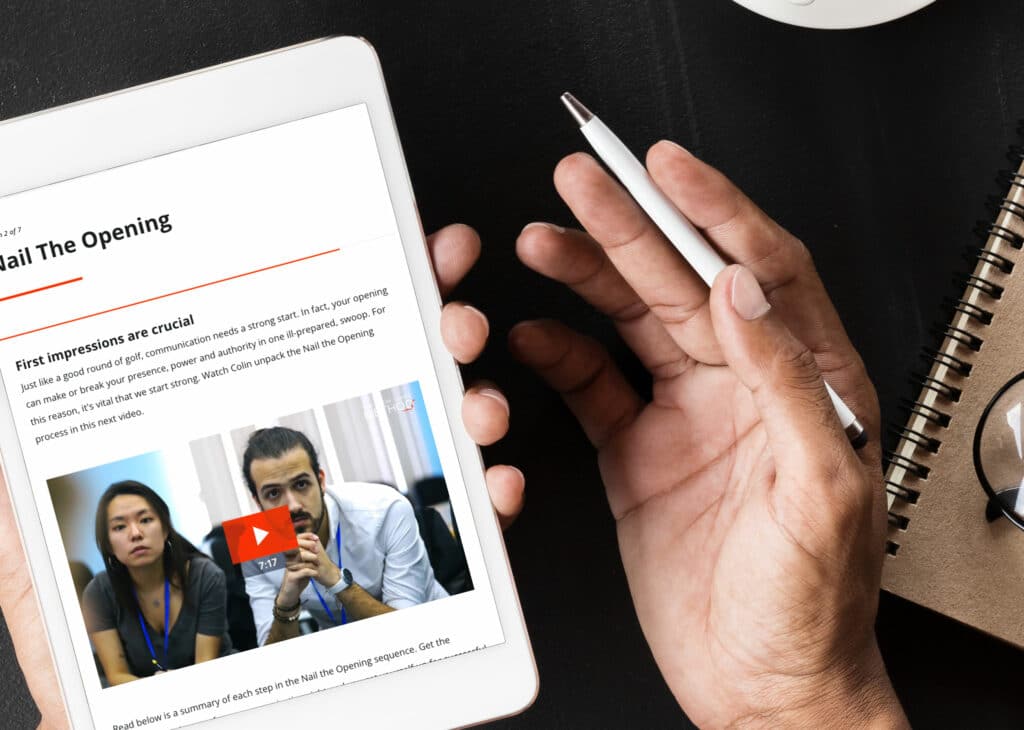Summary
- Mentoring involves nurturing and empowering individuals to learn, grow, and upskill for improved job performance and career advancement.
- Reverse mentoring, popularized by leaders like Jack Welch, emphasizes the mutual benefits mentors can gain from mentees, promoting a culture of continuous learning.
- Being a mentor is a significant responsibility, requiring guidance, support, empathy, and effective communication to foster the personal and professional development of mentees.
What is a mentor?
Mentoring is something that can be done successfully by anybody in a position of experience. The role of the mentor is simply to nurture the mentee, encouraging them to learn, grow and upskill. This empowers them not only to perform better in their role but progress further in their career.
Mentors can also benefit from their mentoring experience. This is called reverse mentoring. Jack Welch, the former CEO of General Electric, popularised reverse mentoring, when he paired up 500 of his top executives with junior associates so they could learn how to use the internet.
The point here is that, although we may be senior, we don’t necessarily have all the answers. There is much to be learned from nurturing and interacting with team members of all ages and experience levels.
What does it mean to be a mentor?
Being a mentor is a significant responsibility that entails guiding and supporting individuals in their personal and professional development. A mentor acts as a trusted advisor, providing guidance based on their own knowledge and experience. They offer wisdom, encouragement, and constructive feedback to help mentees reach their full potential.
A mentor ensures that mentees develop essential skills, gain self-confidence, and make informed decisions. They act as a source of inspiration, offering valuable insights and acting as a role model. As a mentor, one must possess empathy, patience, and excellent communication skills to establish a strong and meaningful mentor-mentee relationship. By sharing their expertise and nurturing growth, mentors play a crucial role in shaping future leaders.
Types of mentors
In the workplace, you may encounter various types of mentors, each offering unique guidance and support. The top 5 types of mentors you might encounter at work, include:
-
Technical Expert Mentor
Offers guidance on technical skills and expertise. They help mentees develop specific job-related skills and knowledge.
Benefits: Enhances proficiency in the technical aspects of the job, supports problem-solving, and fosters professional development.
-
Career Development Mentor
Concentrates on overall career growth and advancement. Assists mentees in setting and achieving career goals, navigating career paths, and making strategic decisions.
Benefits: Provides insights into career trajectories, offers advice on skill development, and aids in building a strong professional network.
-
Leadership Mentor
Centers on leadership skills and personal growth. Guides mentees in developing leadership qualities, effective communication, and decision-making skills.
Benefits: Fosters leadership potential, helps navigate workplace challenges, and supports the mentee’s journey toward leadership roles.
-
Inclusion and Diversity Mentor
Addresses diversity, equity, and inclusion issues in the workplace. Supports mentees in navigating and contributing to a diverse and inclusive work environment, promoting awareness and understanding.
Benefits: Encourages cultural competence, helps in addressing bias, and fosters an inclusive workplace culture.
-
Networking and Relationship Mentor
Concentrates on building professional networks and relationships. Assists mentees in expanding their network, developing strong professional relationships, and navigating organizational dynamics.
Benefits: Enhances visibility within the organization, facilitates career opportunities, and provides guidance on building effective professional relationships.
These mentorship types often overlap, and a well-rounded mentor may cover multiple areas, depending on the needs and goals of the mentee.
Do I need any qualifications to be a mentor?
Being a mentor doesn’t necessarily require formal qualifications, as mentorship often relies on personal experiences, skills, and a willingness to guide and support others. However, possessing certain qualities and experiences can enhance your effectiveness as a mentor. So what skills do you need?
Top skills you need to become a great mentor
Being a great mentor requires a combination of interpersonal skills, industry knowledge, and a genuine commitment to supporting the growth of others. Here are the top five skills you need to be a great mentor:
Effective Communication: Clear and open communication is fundamental to mentoring. A great mentor should be able to articulate ideas, actively listen to the mentee’s concerns, and provide constructive feedback. Being able to adapt your communication style to the needs of the mentee enhances the effectiveness of your guidance.
Empathy and Active Listening: Empathy allows you to understand and relate to the mentee’s experiences, challenges, and emotions. Active listening involves fully concentrating on, understanding, and responding to what the mentee is saying. This skill helps you build a strong rapport with your mentee and fosters a supportive mentoring relationship.
Guidance and Feedback: Providing thoughtful guidance and constructive feedback is a key aspect of mentorship. A great mentor should be able to offer advice, share experiences, and help the mentee navigate challenges. Constructive feedback, delivered in a positive manner, helps the mentee learn and grow.
Flexibility and Adaptability: Every mentee is unique, and their needs may vary. A great mentor should be flexible and adaptable, tailoring their approach to meet the specific requirements of the individual mentee. This includes adapting to different learning styles, communication preferences, and career goals.
Patience and Support: Patience is essential in mentoring, especially when the mentee is facing challenges or setbacks. A great mentor remains supportive and encourages the mentee to persevere through difficulties. Providing a safe and non-judgmental space allows the mentee to openly discuss concerns and seek guidance.
While these skills are crucial, it’s important to note that being a great mentor is an ongoing process of learning and adapting. Additionally, a genuine commitment to the mentee’s well-being and professional development, coupled with a passion for sharing knowledge, contributes significantly to effective mentorship.
Why mentoring is essential to good leadership
Mentoring, often overlooked in its importance, is a crucial element in personal and professional development. It involves a person with substantial experience acting as a mentor, guiding and supporting a mentee in their journey of growth and improvement. The mentor’s role is not simply to provide answers or solutions, but rather to inspire and empower the mentee to take charge of their own learning and development. By doing so, mentors enable their mentees to not only excel in their current roles but also advance further in their careers. However, it is important to recognize that mentoring is a two-way street, where both parties can benefit from the relationship. This concept, known as reverse mentoring, was popularized by Jack Welch, former CEO of General Electric. Welch implemented a program where senior executives were paired with junior associates to learn how to navigate the internet. This highlights the idea that even those in senior positions have room to learn and grow, and that there is immense value in fostering connections and collaboration with individuals of different ages and experience levels. Overall, mentoring is a powerful tool for personal and professional development that should be embraced by individuals at all stages of their careers.
It’s important for leaders because, put simply, it brings the best out of the people you lead. Mentoring generates confidence, inspires trust and fast-tracks team development.
A big part of your own leadership development is determining what sort of a leader you want to be. The “ transformational leadership ” style is often considered among the most desirable by employees. The hallmarks of transformational leadership are:
-
The ability to inspire staff through effective communication
-
Creating an environment of intellectual stimulation
Mentor leadership aligns perfectly with this managerial style. If it’s the route you’d like to take to become a more inspirational, more effective leader, here are some quick wins for you to try.
“They will feel a stronger connection to you as a leader and the organisation as a whole for investing in their skills and future”
10 steps to being an amazing mentor
Here are 10 additional steps on how to be an amazing mentor:
1. Establish Clear Objectives
– Clearly define the goals and objectives of the mentoring relationship. Understand what the mentee hopes to achieve and work collaboratively to set realistic and measurable milestones.
2. Encourage Goal Setting
– Guide the mentee in setting both short-term and long-term goals. Help them identify specific, achievable objectives that align with their professional development and career aspirations.
3. Promote Independence and Critical Thinking
– Foster independence by encouraging the mentee to think critically and make decisions on their own. Provide guidance without solving every problem, empowering them to develop problem-solving skills.
4. Create a Safe and Inclusive Environment
– Ensure that the mentoring relationship is built on trust, confidentiality, and inclusivity. Create an environment where the mentee feels comfortable sharing challenges, successes, and aspirations.
5. Share Personal Experiences
– Share relevant personal experiences, including both successes and failures. Your stories can provide valuable insights, lessons learned, and a sense of relatability for the mentee.
6. Provide Constructive Feedback
– Offer constructive and specific feedback that focuses on the mentee’s strengths and areas for improvement. Frame feedback in a positive manner to inspire growth rather than discourage.
7. Cultivate Networking Opportunities
– Introduce the mentee to your professional network and help them expand their own connections. Networking is essential for career development, and your support can open doors to new opportunities.
8. Stay Current with Industry Trends
– Stay informed about the latest trends, technologies, and developments in your industry. This knowledge allows you to provide relevant and up-to-date guidance to help the mentee stay competitive.
9. Celebrate Achievements
– Acknowledge and celebrate the mentee’s achievements, no matter how small. Recognition boosts confidence and reinforces positive behavior, motivating the mentee to continue their efforts.
10. Seek Feedback and Reflect
– Actively seek feedback from the mentee on your mentoring approach. Reflect on your own mentoring practices, identify areas for improvement, and continuously refine your skills to better support your mentee.
Remember, being an amazing mentor is an ongoing process of learning, adapting, and fostering a positive and growth-oriented relationship with your mentee.










